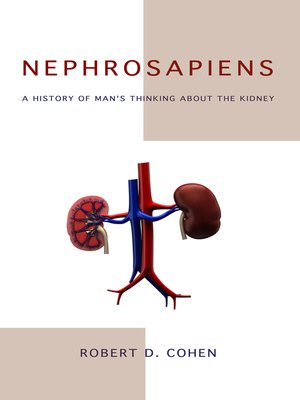
Sign up to save your library
With an OverDrive account, you can save your favorite libraries for at-a-glance information about availability. Find out more about OverDrive accounts.
Find this title in Libby, the library reading app by OverDrive.



Search for a digital library with this title
Title found at these libraries:
| Library Name | Distance |
|---|---|
| Loading... |
Nephrosapiens is a book about the development of thinking about the kidney over the millennia. It stems from the author's period as a Lecturer on Professor Clifford Wilson's Academic Medical Unit at The London Hospital Medical College (University of London, UK) about 40 years ago. Wilson was a highly distinguished man with many achievements, including co-description with Kimmelstiehl, a New York surgeon, of the kidney lesion characteristic of diabetes, and a major role in the understanding of the clinically obvious relationship between kidney disease and high blood pressure. Professor Wilson lectured on this subject, but often delegated this to Robert, who regaled the students with an account of the many disorders of the kidney. Robert Cohen's work has mainly been on the liver – he published?Man and the Liver with Matador in 2011 – but realised later in life the truth in Clifford Wilson's admiration of the kidney. There are a number of instances in which the kidney and the liver actually co-operate to do a particular job, and also, there are important examples where the brain and the rest of the nervous system are also involved in the general integration of bodily function known as homeostasis. Nephrosapiens is a book ranging over the kidney's functions in health and disease, its appearance in art, and culinary aspects worldwide. It will appeal to professional and scholarly figures in the world of medicine, as well as general reading for those interested in biology of the human body.







